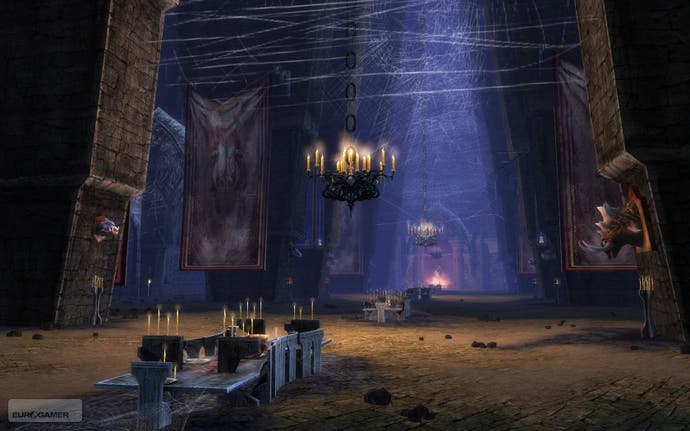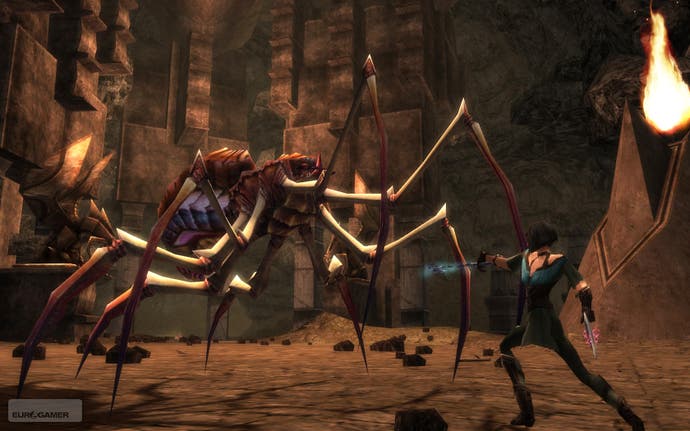The Guild Master
ArenaNet's Jeff Strain on the future of Guild Wars.
If you're remotely interested in videogames (and that's a safe assumption, we hope, unless you mistyped EuroGardener.net and just wanted to know if it's a good idea to fertilise petunias with coffee grounds), you may well feel somewhat swamped in massively multiplayer games at the moment.
It's all World of Warcraft's fault, of course. Put something on the market which gets just shy of ten million punters swinging you over ten dollars a month, and you'll make the publishers the world over sit up sharply from their expensive dinners and bellow for copycat games, right here and right now. All of a sudden, everyone wants a slice of that rich, fattening ten dollar a month pie.
Everyone except Jeff Strain. A former Blizzard employee, he left the company along with several other staff members a number of years ago to create ArenaNet, a dedicated developer of massively multiplayer games. They've since sold millions of copies of their Guild Wars games; and they've never asked anyone for ten dollars a month.

It's not that they don't like money. "Do I wish that every Guild Wars customer would pay us $15 every month?", Strain muses when we chat with him about the figures. "Well, sure! We'd love that - but that's not the relationship we have with our customers."
"We know that we make less money per player than an MMO that asks you to pay a subscription fee - but what we trade that off with is having a lot more players, and that has worked out very well for us."
All told, the original Guild Wars has spawned three games to date - not a game and two expansion packs, as you'd expect from a conventional MMO, but three separate games. You can buy any one of Prophecies, Factions or Nightfall and play it from scratch, without having to concern yourself with the other games; or you can buy all three and move your characters freely between the three continents. Either way, you simply pay for the original game, and not a penny afterwards.
It's a model which has worked out incredibly well, despite raising a lot of eyebrows when it was first announced. Millions of players have dipped into the Guild Wars universe, and many, it seems, have been very satisfied with what's on offer.
"We have an expectation, when we're building something like this, that we're going to get massive sales," Strain explains to us, "and a lot of those massive sales are people coming back and playing Guild Wars who have played previous campaigns and had a good time. They're able to come back, and that's great for us. We know we're going to sell well because we've made a commitment to our players and lived up to it."

It's also, however, a model which has taught ArenaNet some very important lessons - and Strain confesses that many things have happened to Guild Wars in the last few years, over the course of three full games, which have surprised the team. The net result is that while many players may be having a great time, Arena.net thinks they can do better - and have opted to take a leap forward and develop a sequel franchise, Guild Wars 2, rather than continuing to add new campaigns to the existing Guild Wars universe.

